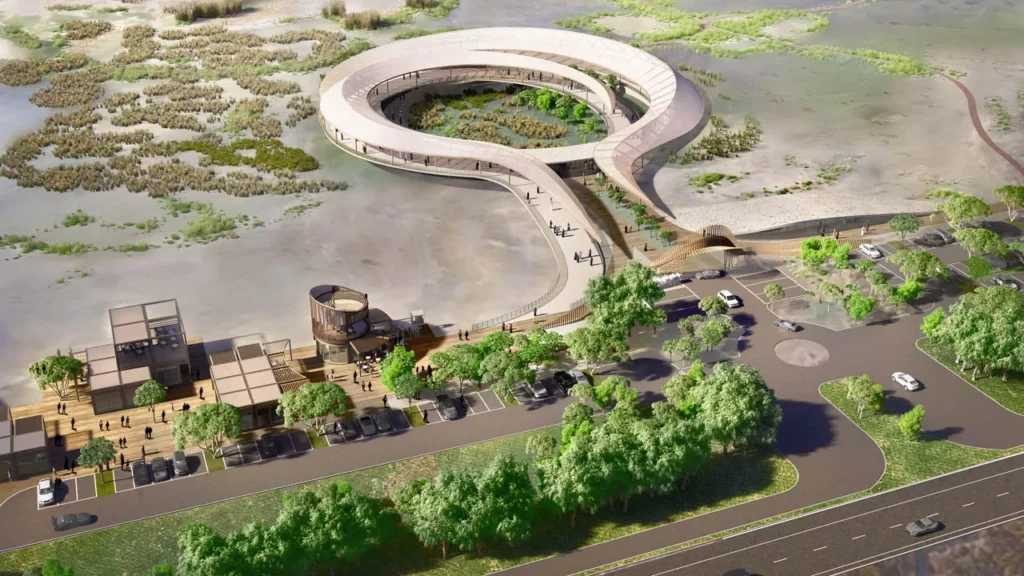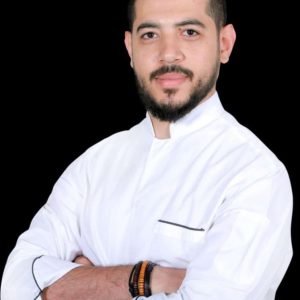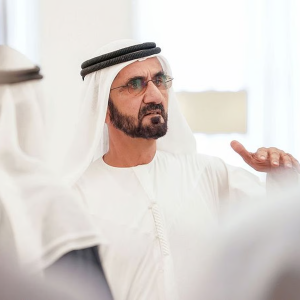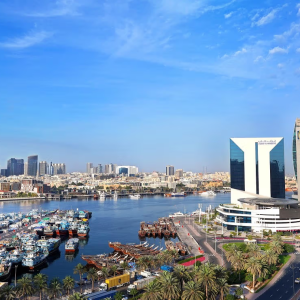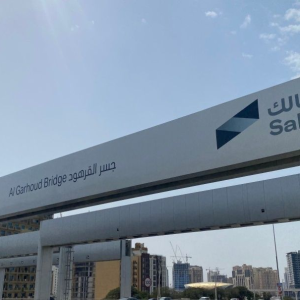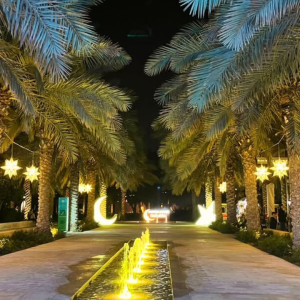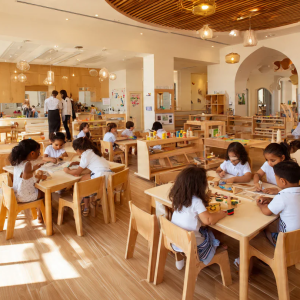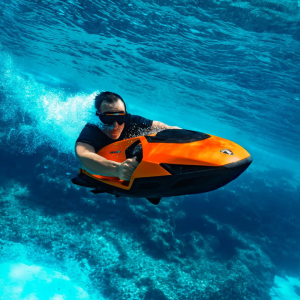In a powerful move that redefines the future of urban nature experiences, Dubai has announced a major $177 million (AED 650 million) contract to completely transform the iconic Ras Al Khor Wildlife Sanctuary. This ambitious upgrade is set to enhance biodiversity, boost eco-tourism, and position Dubai as a world leader in urban conservation.
The Ras Al Khor Wildlife Sanctuary holds a special place in the heart of Dubai. Nestled at the edge of the city’s bustling urban landscape, it offers a rare glimpse into serene wetlands teeming with flamingos, herons, ospreys, and hundreds of migratory bird species. Now, thanks to this transformative investment, the sanctuary is set to become a global showcase for sustainable urban development and environmental stewardship.
A Vision for a Greener Future
The Ras Al Khor upgrade aligns with Dubai’s bold 2040 Urban Master Plan, which envisions a city where urban development harmonises with expansive green spaces and protected natural habitats. The sanctuary’s transformation will reinforce Dubai’s reputation as a forward-thinking metropolis that cares deeply about the environment and community well-being.

This ambitious project is designed to significantly expand and restore key ecological areas, enhancing biodiversity and creating a vibrant space for wildlife and people alike. By integrating modern design with ecological principles, Dubai is crafting a blueprint that other global cities may soon follow.
Major Habitat Restoration and Expansion
The first phase of the project focuses on restoring and expanding natural habitats across the sanctuary’s 6.4 square kilometres. One of the most striking changes will be the dramatic increase in mangrove areas, growing by 60% to cover 65 hectares. These lush mangroves are critical for coastal protection, water purification, and providing a safe haven for various marine and bird species.

In addition, water bodies within the sanctuary will increase by an impressive 144%, covering 74 hectares. The introduction of new lakes, reed ponds, salt flats, and a special “green spine” designed for ecological monitoring will create a thriving mosaic of interconnected habitats. These enhancements will not only enrich biodiversity but also improve the sanctuary’s ability to absorb carbon dioxide and mitigate urban heat.
The project also introduces new ecological features such as Mangrove Lake and North Edge Lake. These striking additions will serve as focal points for both wildlife and visitors, providing serene water landscapes and attracting migratory birds in even greater numbers.
Bringing People Closer to Nature
While protecting wildlife remains a priority, Dubai’s vision for Ras Al Khor is equally about connecting people to nature. The second phase of the project focuses on visitor facilities, eco-tourism experiences, and educational programs.
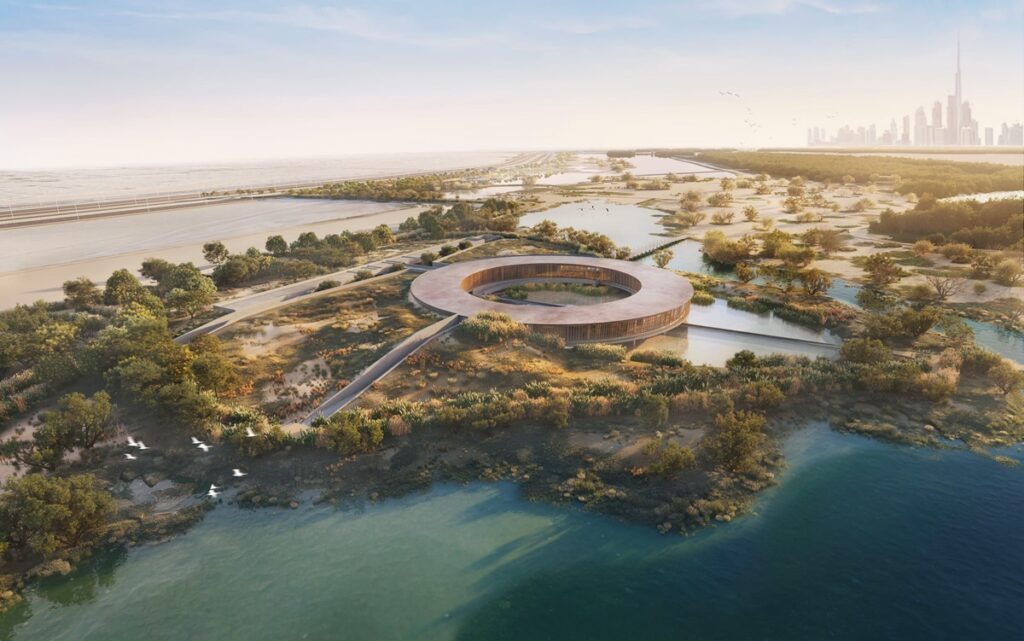
A new visitor centre will serve as the heart of the sanctuary’s public experience. Designed to blend seamlessly with its natural surroundings, the centre will offer immersive exhibitions, guided tours, and interactive learning spaces. Bird-watching towers and special observation decks will provide stunning panoramic views of flamingos and other resident birds in their natural environment.
The upgrade will also introduce eco-dining options, including nature-inspired restaurants and snack kiosks that encourage visitors to linger longer and enjoy the sanctuary at their own pace. For those eager to explore on foot or by bike, 5.6 kilometres of cycling trails and 3 kilometres of walking paths will be added, allowing guests to experience the sanctuary up close while promoting a healthy, active lifestyle.
By seamlessly integrating these human-focused features, Dubai aims to transform Ras Al Khor into a vibrant social hub that educates, entertains, and inspires people of all ages.
Projected Impact on Eco-Tourism
The revitalisation of Ras Al Khor is expected to trigger a significant rise in eco-tourism, one of the fastest-growing segments in global travel. Currently welcoming around 50,000 visitors each year, the sanctuary is set to attract up to 300,000 annual visitors after the upgrade. This six-fold increase will not only boost local tourism revenues but also stimulate growth in the hospitality, retail, and service sectors.
Beyond the economic benefits, this surge in eco-tourism will strengthen Dubai’s position as a top-tier global destination for responsible travel. As travellers increasingly seek authentic and sustainable experiences, Ras Al Khor’s transformation offers a compelling attraction for international visitors looking to explore Dubai’s natural beauty beyond its glittering skyscrapers.
The project supports Dubai’s strategic goal of becoming one of the world’s top three cities for tourism and business, offering residents and visitors a rare balance of urban energy and tranquil nature.
Enhancing Community Value
The sanctuary’s upgrade promises to bring profound benefits to Dubai’s residents. As urban life grows ever faster and more complex, access to green spaces becomes essential for mental and physical well-being. Ras Al Khor will offer a natural retreat where families, students, and professionals can disconnect from screens, breathe fresh air, and reconnect with nature.
Educational programs will play a central role in the sanctuary’s future. School groups and university researchers will have access to hands-on learning experiences, studying migratory patterns, wetland ecology, and conservation techniques. Guided tours and interactive workshops will encourage environmental awareness and inspire a new generation of eco-conscious leaders.
Community outreach initiatives will also invite volunteers to participate in habitat restoration and wildlife monitoring activities. By involving residents directly, Dubai is cultivating a deeper sense of stewardship and pride in this remarkable urban oasis.
Environmental Resilience for the Future
The Ras Al Khor project goes far beyond beautification — it is a strategic investment in environmental resilience. The expanded mangroves and water bodies will strengthen the city’s natural defences against climate change impacts, such as rising sea levels and extreme heat.
These ecosystems also provide crucial services, including air purification, flood control, and support for marine life. By fortifying these natural buffers, Dubai is proactively safeguarding its coastline and urban infrastructure while creating an inspiring example of climate adaptation in action.
Moreover, the sanctuary plays a vital role in supporting global migratory bird networks. Every year, thousands of birds stop at Ras Al Khor during their journeys across continents. Preserving and enhancing this habitat ensures Dubai continues to be a critical link in these epic natural migrations.
A Global Benchmark for Urban Conservation
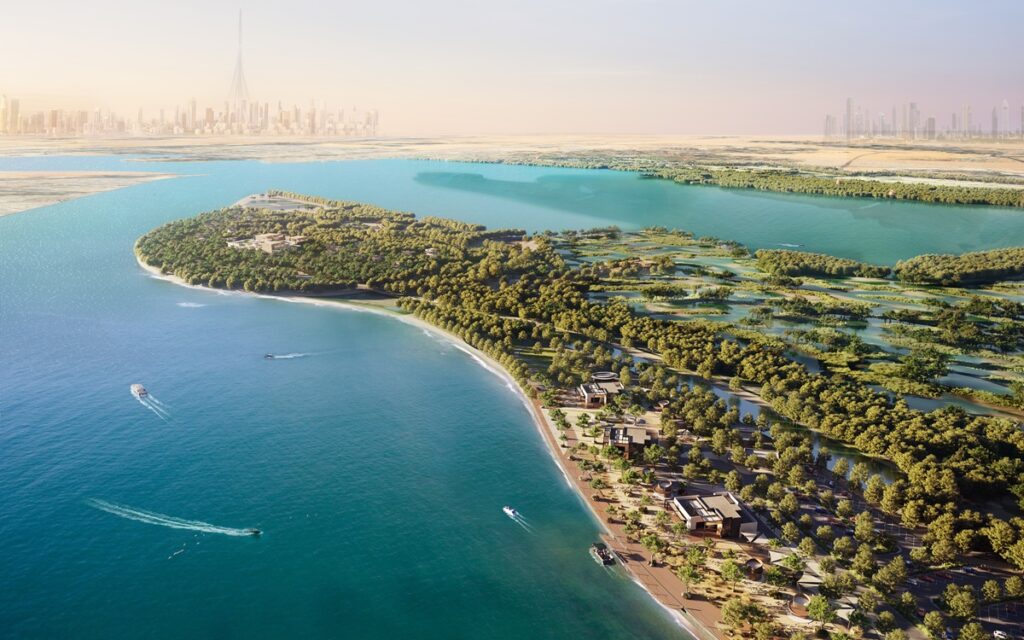
Dubai’s commitment to transforming Ras Al Khor signals a new era for urban conservation. Rather than viewing development and nature as opposing forces, this project proves they can coexist beautifully when guided by innovative design and a bold vision.
As cities worldwide grapple with rapid urbanisation and climate challenges, Ras Al Khor’s transformation offers a blueprint for integrating thriving ecosystems within dense urban settings. This project demonstrates that cities can grow while nurturing biodiversity, providing recreational spaces, and strengthening community bonds.
It positions Dubai not just as a leader in futuristic architecture and business, but also as a pioneer in environmental consciousness — an identity increasingly valued by global citizens and investors alike.
Looking Ahead
With the first phase already underway and slated for completion by 2026, anticipation is high. The second phase focusing on visitor experiences and eco-tourism facilities will follow, creating a seamless blend of ecological restoration and human engagement.
In the coming years, Dubai plans to launch volunteer opportunities, citizen science initiatives, and community festivals at Ras Al Khor, ensuring that the sanctuary remains a living, evolving space shaped by and for the people.
As the city watches cranes and construction crews shape this ambitious project, residents can look forward to an enchanting new chapter in Dubai’s relationship with nature — one that celebrates its rich biodiversity, welcomes global visitors, and sets a high bar for urban sustainability worldwide.
Dubai’s $177 million investment in Ras Al Khor Wildlife Sanctuary is far more than a construction project. It is a promise — a promise to its people, its wildlife, and future generations that nature has a vital place in the heart of the city.
Do follow UAE Stories on Instagram
Read More: Dubai Holding and Select Group Forge Landmark Partnership to Redefine Palm Jebel Ali

